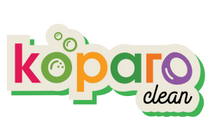
What is toxin-free cleaning? … and why it is important
Cleaner Approach to Cleaning
Across the world, people are making changes to the way they eat, consume and think – eating organic foods, reducing processed meals, reducing the use of single-use plastics, embracing ethical and sustainable fashion, being minimal in their consumption patterns. Ironically, in this shift towards sustainable and healthier living, we often forget the choices we make for our household cleaners.

What’s in Your Cleaner?
Most commercial cleaners are loaded with toxic and polluting substances. The long-term health effects and environmental pollution caused by using these products cannot be taken lightly. Studies are linking some of the harsh chemicals, dyes and fragrances used to an increase in childhood asthma, reproductive disorders and even cancer.
Why You Need to Make the Switch to Natural Cleaning
Known culprits in chemical cleaners
An important ingredient of cleaning products are ammonia and ammonium compounds. Ammonia is extremely efficient for disinfecting purposes, especially for glass surfaces. However, it can be highly corrosive and there are serious ill-effects of using this mega cleaner. It can cause major irritation to the eyes, nose, throat and the respiratory tract on exposure by touch or inhalation. If ingested it can cause severe internal burns. Moreover, if combined with other chemical cleaners like chlorine bleach ammonia can create toxic gases.
Similarly, antibacterial soaps have the harmful triclosan and other chemical additives. The US FDA has even proposed a ban on 19 of these chemicals. However, they are still very much a primary component of antibacterial soaps. Interestingly, there is no proof that antibacterial soaps are more effective in fighting germs than regular soaps. In fact, a major concern with using triclosan and other antibacterial substances is that they might end up creating drug-resistant bacteria which are even harder to get rid of.
Other components of chemical cleaners are no less harmful. Bleach fumes can contain chlorine and chloroform which have been linked to respiratory and neurological problems and cancer.
2-Butoxyethanol, used in grease and stain removers is a known eye and skin irritant. Formaldehyde is a known carcinogen. Diethylene Glycol Monomethyl has been associated with reproductive health problems and has been banned in the EU.

The Koparo Alternative
It is important to note that none of these ingredients are necessary for cleaning our homes. At Koparo we question the addition of every chemical to the cleaner and substitute it where possible for naturally derived ingredients. We also maintain 100% transparency about our ingredients. You can find these here.
What’s in Our Bottles?










